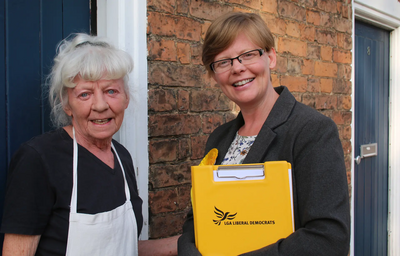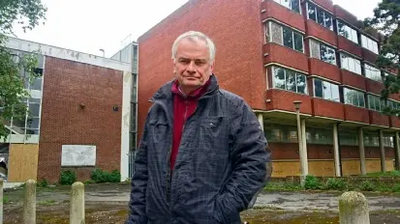Lib Dems publish plans to cut taxes for businesses by 20% in Gloucester

The Liberal Democrats have published a comprehensive blueprint for replacing the broken business rates system, cutting taxes for businesses by 20% in Gloucester.
Dr Rebecca Trimnell, the Lib Dem Parliamentary spokeswoman for Gloucester, said the plans would boost local investment and ensure businesses in the city thrive.
Recently the Lib Dems in Gloucester revealed that the city council has been unable to collect nearly £700,000 in business rates because two office blocks on London Road have been empty for years.
The HM Revenue & Customs reduced the rateable value on 67 and 69 London Road to zero meaning the owners, Pall Mall Estates, do not have to pay business rates on either property.
The report - Taxing Land, Not Investment - calls for the abolition of business rates and its replacement with a tax on land values, the Commercial Landowner Levy (CLL).
The levy would remove buildings and machinery from calculations and tax only the land value of commercial sites, boosting investment and cutting taxes for businesses.
It would also end the exemptions for empty and derelict premises and use this money to lower bills for all.
Liberal Democrat members will debate and vote on the proposals at the party's Autumn Conference in Brighton next month.
Dr Trimnell said: "Time and again I have heard concerns about the devastating impact of business rates on struggling high streets and the wider local economy.
"It is the responsibility of the current Conservative Government to ensure that our businesses are able to thrive, but ministers are not doing anywhere near enough.
"Liberal Democrats demand better. That is why we are campaigning to create the environment needed for local businesses to grow and create jobs in Gloucester."

Councillor Jeremy Hilton, who represents Kingsholm & Wotton Ward, has been trying to get the two properties on London Road acquired for residential redevelopment, with a compulsory purchase order being used if a reasonable purchase terms could not be agreed.
"With the Commercial Landowner Levy the lawful exemption that Pall Mall Estates has benefited from would be at an end," Councillor Hilton said.
"Gloucester City Council would not have missed out on nearly £700,000 of business rates which could have been invested in local services.
"In struggling parts of the country, the impact of this on landowners would be limited, as the Commercial Landowner Levy would be low in these places.
"In contrast the impact would be greatest where new supply is most sorely needed."
The key recommendations from the report include:
- Business rates should be abolished and replaced by a Commercial Landowner Levy based on the value of commercial land only
- The levy should be paid by owners rather than tenants
- Non-residential stamp duty should be scrapped to improve the efficiency of the commercial property market
- Commercial land should be taxed regardless of whether the buildings above it are occupied; the tax should also apply to unused and derelict commercial land
The report also finds:
- The manufacturing and technology sectors would be the most significant beneficiaries of the CLL, receiving tax cuts of over 20%.
- Retailers in struggling areas would also receive a boost.
- The CLL would represent a tax cut initially but is likely to be at least revenue-neutral in the long-term. Redistribution between local authorities would be adjusted to ensure no change in local funding.
- By taxing landowners rather than businesses, half a million SMEs would be spared the bureaucratic burden of property taxation. With far fewer plots of land than individual businesses, the CLL would save councils both time and money.
